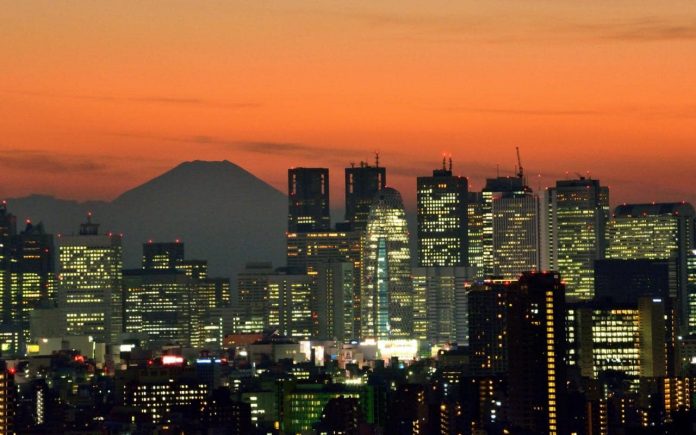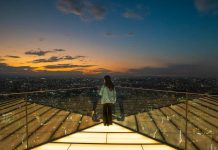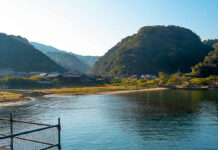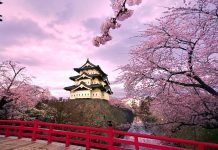
Tokyo in the Fall
On the last train home,
salarymen reek regret
despite catching it.
Sombre, their heads remain bowed
as bullets rush straight
through the heart where katanas
were raised like emblems
of a samurai’s honour.
It must be the fall.
That’s why less kids are playing
in Yoyogi park
and the sun seems to set where
it only rises.
Still the way of life remains,
quirky sub-cultures
unfolding on streets
foreign to the foreigner
uninitiated.
It must differ from within
for I still wonder
how the old can recognise
these new erections
of public infrastructure
blocking out the setting star.
Plot, Setting, Themes and Literary Devices
This poem is a commentary various tenets of Japanese society, namely ageing population, declining birth rate and modernisation, from the point of view of an outsider. The poetic voice narrates scenes from everyday Tokyo which he has stumbled upon: a ride on the last train, a walk through the famous Yoyogi park and nameless streets, with a concluding visual of the silhouette of a metropolis illuminated by a setting sun.
The first stanza juxtaposes the imagery of the bullet train and the samurai’s katana, stemming from a play on the word “bullet” to refer to the mode of transport as well as modernity in terms of weapon choice when comparing a bullet to a katana. There is a detachment of the outsider’s cliche association of Japan’s rich history and culture with what he observes- flushed salary men reeking of alcohol from a drinking session after a day’s work packed tightly into the last train home. Regret is alluded to here with a modern twist on bowed heads (instead of the traditional Japanese greeting of bowing), regret from drinking too much and having to wake early the next day, and regret of those who miss the last train altogether.
On the whole, the poem echoes a sombre, grave mood, further underscored by its setting in the fall season. Besides the transitional shift from a bright cheery summer to a darker winter this particular season symbolises, the diction choice of “fall” also comments on the declining birth rate when read with the following line “that’s why less kids are playing in Yoyogi park”. Additionally, there is phallic imagery of newly erected buildings in the city, which suggests how dropping birth rates are a causal compromise that comes with the pursuit of modernisation.
Japan, also known as the land of the rising sun, omits the image of sunset and dusk, accentuated by increasingly shorter daytime and longer periods of darkness that comes with autumn. In this poem, the setting sun is alluded to, slightly ominous and cause for worry for a city where life seems to go on as per usual in the penultimate stanza.
In the end, the poetic voice concludes that this uneasiness and divide he seems to experience and cannot reconcile must be a result of him being an outsider, hence the inability to truly comprehend the preservation of culture in Japan’s socio-economic developments. Furthermore, due to the poetic voice’s presumable stereotypes of Japan, this poem can also be seen to dabble in the concept of Orientalism, and questions the reliability of his tinted point-of-view in this commentary.
Poetic Form
The poem takes on the form of a Chōka, with the syllabic structure of 5-7-5-7-5-…7-7. The Chōka is a variation of the Waka, a genre of Japanese poetry usually written in Japanese as opposed to Kanshis, which are written in classical Chinese.













